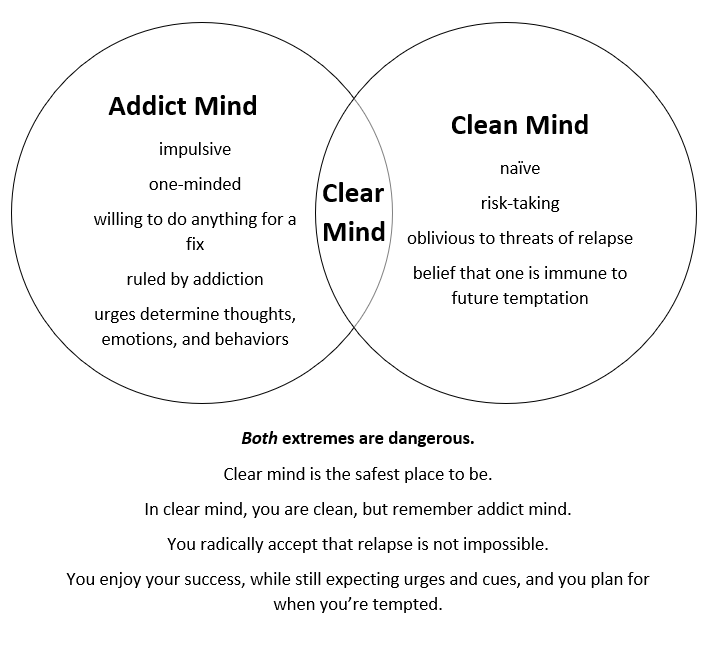All posts in this series reference working through DBT® Skills Training Handouts and Worksheets, Second Edition, and all quotes come from that book unless otherwise specified.
To learn more about distress tolerance skills as a whole, why they are important, and the goals the book sets forth for studying them, click here. The Distress Tolerance Skills section of the book is divided into two main types of handouts: Crisis Survival and Reality Acceptance. There will also be some material for "When the Crisis is Addiction". This blog will cover "When the Crisis is Addiction".
Everyone Has Addictions:
In this section, the book first makes the point that everyone has addictions. It lists everything from alcohol and drugs to spiritual practices as potential things to which someone could be addicted. For me, I will be working through this section with regards to self harm.
Dialectical Abstinence:
The second subsection of addiction distress tolerance skills is dialectical abstinence. There are two common ways that people try to overcome addictions. The first, abstinence, or completely avoiding the thing you are addicted to, helps people avoid the addiction longer but makes it harder to "get back on the wagon" if they slip up. The second, harm reduction, or acknowledging that there will be slips and doing damage reduction, not demanding perfection like abstinence, does helps people "get back on the wagon faster" after slip-ups, but they don't avoid the addiction as long as those practicing abstinence.
Dialectical abstinence is a combination of these two methods. Your goal is abstinence, to completely avoid the addictive behavior, but if you slip up, you practice harm reduction and "get back on the wagon", or get back to abstinence, as soon as possible. This method is effective, but it's hard work, and you never get to take a break. This is essentially "expecting the best and planning for the trouble spots."
 |
| Found at https://slideplayer.com/slide/6535001/ |
The book offers a plan for abstinence and a plan for harm reduction, but they are too long to include here.
Clear Mind:
 |
| Found at https://66.media.tumblr.com/563a2cb64e23c30f1025532187ea0181/a587a19e1882adcd-75/s1280x1920/ce0399a1699dd03ccfe66c9d105f3b5cfd10f358.png |
Community Reinforcement:
It is important to make sure that your life without your addictive behavior is just as fulfilling as your life with the addictive behavior. As you begin to stop going to places and hanging out with people who reinforce the addictive behavior for you, add new activities and meet new people. If you're not sure what you like, try out a variety of activities. At first, avoid any activities you think might trigger your addiction. "Observe all the extra positive events occurring when you are not engaging in addictive behaviors."
Burning Bridges and Building New Ones:
 |
| Found at https://i1.wp.com/ahangoverfreelife.com/wp-content/uploads/2018/12/2018-07-14-2.png?resize=604%2C340&ssl=1 |
Alternative Rebellion and Adaptive Denial:
Alternative Rebellion:
 |
| Found at https://images.slideplayer.com/34/10254182/slides/slide_31.jpg |
Adaptive Denial:
 |
| Found at https://i1.wp.com/ahangoverfreelife.com/wp-content/uploads/2018/12/2018-07-14-4.png?resize=604%2C340&ssl=1 |
Comments
Post a Comment